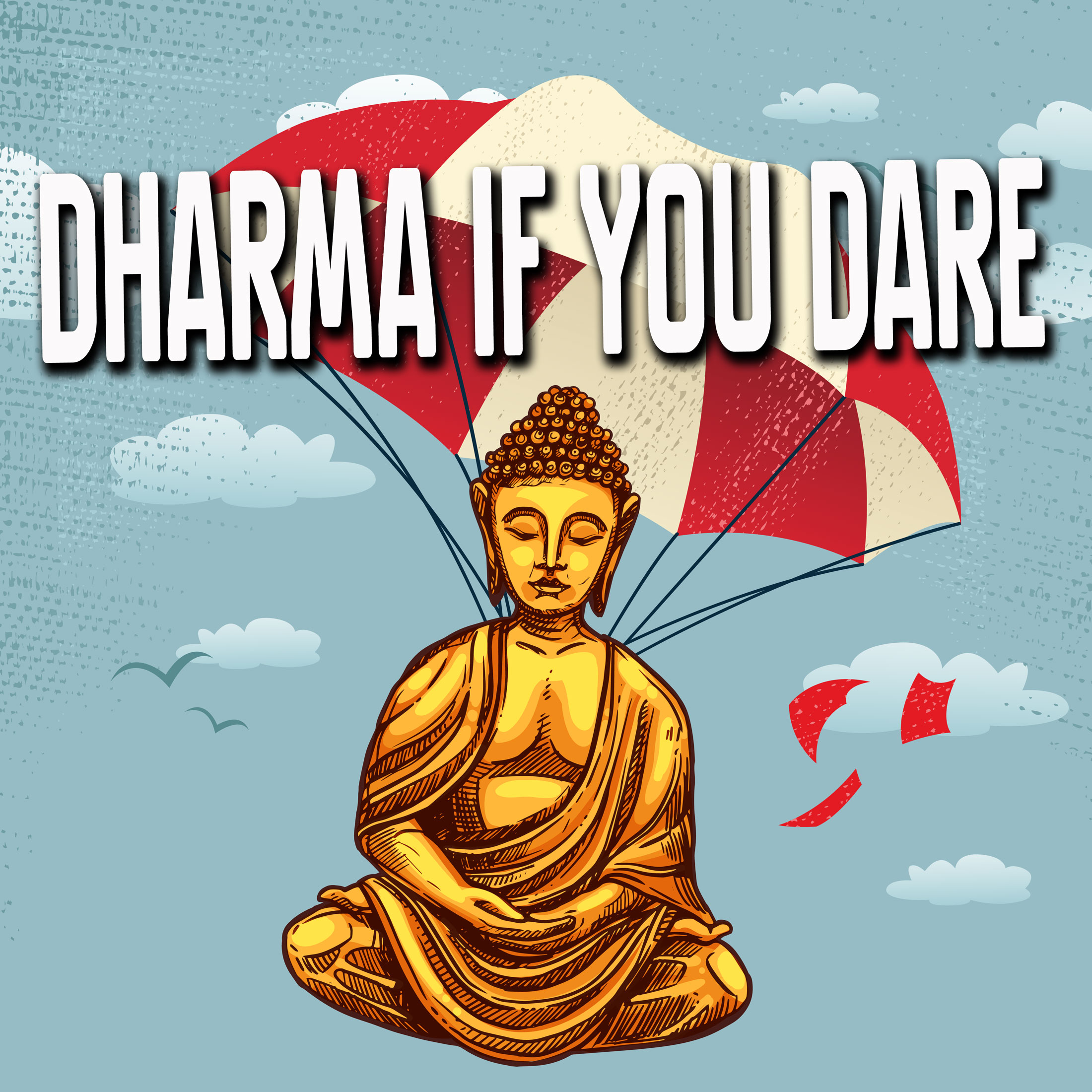Episodes

Wednesday Feb 24, 2010
The Four Impediments to Awakening (Part 1 of 3)
Wednesday Feb 24, 2010
Wednesday Feb 24, 2010
Teachings based on the book "Gems of Dharma, Jewels of Freedom" by Gampopa.
---
The Four Impediments to Awakening Why don't you want to awaken? Get ready for impact. Talk given at winter retreat in Dec. 2009, Miki, Hyogo, Japan.
Note: Quote attributed to Neils Bohr > actually by Schrodinger to Bohr.

Friday Jan 08, 2010
What Does it Mean to Awaken? (Part 4 of 4)
Friday Jan 08, 2010
Friday Jan 08, 2010
Some topics covered in this talk: skandhas (composites), the awakening experience, dealing with pain, "karma is cetana (will or decision)", being hurt and how to forgive

Tuesday Dec 22, 2009
What Does it Mean to Awaken? (Part 3 of 4)
Tuesday Dec 22, 2009
Tuesday Dec 22, 2009
Part 3: Seven Types of Meditation
In this talk: Samatha meditation (develops calm and concentration resulting in bliss) Six types of samatha meditation: visualization, mantra, mudra, devotional, energy, and breathing. Plus, Vipassana meditation: insight
---
In this talk: Samatha meditation (develops calm and concentration resulting in bliss) Six types of samatha meditation: visualization, mantra, mudra, devotional, energy, and breathing Vipassana meditation: insight What is reality? From the point of view of Buddhism, there is no object to be found in the universe anywhere. All objects are made up of composite parts. A human being is made up of these composite parts: form, feeling, perception, consciousness, factors of consciousness.

Sunday Dec 06, 2009
What Does it Mean to Awaken? (Part 2 of 4)
Sunday Dec 06, 2009
Sunday Dec 06, 2009
Part 2: What is Meditation?
The separation between the mind that's experiencing a state and the state that you're experiencing is fundamentally meditation. Meditation practices are tools that you use to get between you and your habitual run-on mind.
---
"Fundamentally, meditation means the ability to witness what's going on in consciousness while it's going on in consciousness." "If you don't see that the state you're in right now -- while you're in a state of anger or in a fight -- is more important than the outcome of the fight, you'll always be fighting. [...] If you put the state you're in right now first, you're meditating, which doesn't mean you have to say to yourself 'I'm not angry.' You step back from the state you're in to look at what it's like to be in that state." "Meditation is the process of learning how to observe the state you're in -- physically, emotionally and mentally -- without getting all bent out of shape about it." "Meditation practices are basically levers or wedges to get in between you and your state to pry the mind and the state apart from each other. If I can pry myself free from that state a little then I'm in a position to look at its nature .... and learn something useful ... and realize that it doesn't really matter what state arises." "The separation between the mind that's experiencing a state and the state that you're experiencing is fundamentally meditation. Meditation practices are tools that you use to get between you and your habitual run-on mind."

Sunday Nov 22, 2009
What Does it Mean to Awaken? (Part 1 of 4)
Sunday Nov 22, 2009
Sunday Nov 22, 2009
Part 1: No More Quiet Desperation
We don't have to lead lives of quiet desperation. Sensei tells us:
"The key to awakening is being aware of your own state, almost as if it's not your own."
---
We don't have to lead lives of quiet desperation. Perhaps we are too lazy to investigate the nature of our own consciousness, perhaps we have doubts. We fool ourselves into thinking we can get true happiness from objects that are transitory and fundamentally... unsatisfactory. Sensei tells us: "The key to awakening is being aware of your own state, almost as if it's not your own." "Ask yourself one question: 'What is inherently unpleasant or uncomfortable or undesirable in this thing?' "In the process of taking apart your views of things, you find that a lot of the things you're building your happiness on are doomed to end. Can they possibly, then, create everlasting peace?"

Saturday Oct 31, 2009
Are You at the Edge of the Cliff? (Part 2 of 2)
Saturday Oct 31, 2009
Saturday Oct 31, 2009
We're obsessed with our lives. We reference everything back to ourselves. We need to let go of this obsession in order to access that which is greater than ourselves. You can't be busy with distractions.
---
"The problem is that you want to have your cake and eat it, too. So you try to do the job and career and relationship thing AND stand on the edge of the cliff, but because you're clinging to the job and career and relationship, you're not actually ON the edge of the cliff. You try to convince yourself you're on the edge of the cliff when you're 15 miles from it. The teacher's job is nothing other than to disabuse you of the fact that you're not standing at the edge of the cliff, and to point where the edge of the cliff is." Terms used in the talk: "alaya vinjana" (http://en.wikipedia.org/wiki/Store_consciousness) Jataka tales (http://en.wikipedia.org/wiki/Jataka_tales) Jodo Shinshu (http://en.wikipedia.org/wiki/Jodo_Shinshu) Kyentse Norbu Rinpoche (http://en.wikipedia.org/wiki/Dzongsar_Jamyang_Khyentse_Rinpoche) guru yoga (Google it yourself ;-))

Sunday Oct 25, 2009
Are You at the Edge of the Cliff? (Part 1 of 2)
Sunday Oct 25, 2009
Sunday Oct 25, 2009
Are We Our Thoughts?
Part 1 of 2
The mistake we make that hinders our spiritual development is that we take things personally, which feeds experiences back into the conditioned responses that we call the self. So what is the self? Our thoughts? Our emotions? Our body?
---
Wake up in the morning and set your aspiration for the day. It's fundamental for "working the bowl upstream into the more radiant fields of consciousness." The mistake we make that hinders our spiritual development is that we take things personally, which feeds experiences back into the conditioned responses that we call the self. So what is the self? Our thoughts? Our emotions? Our body? This talk was given in March 2009 at Clear Sky Center, B.C., Canada.

Friday Sep 25, 2009
You Don't Have to Be "Smart"
Friday Sep 25, 2009
Friday Sep 25, 2009
To meditate, you don't have to be "smart," says Doug Sensei. You just have to see clearly.
---
In this edited talk excerpt, Sensei discusses "the Purification of View" (from the Abhidhamma) and provides a useful meditation exercise to help one come to understand nama and rupa (mind and matter), the knowledge of which constitutes the first stage of insight and leads to overcoming doubt on the Path.

Wednesday Jul 29, 2009
Fundamental Friendliness
Wednesday Jul 29, 2009
Wednesday Jul 29, 2009
What does it mean to purify one's morality?
---
In this short excerpt from a talk given in Calgary, B.C., Canada, Doug Sensei discusses "the purification of virtue (sila)" as part of the traditional "seven stages of purification" and defines sila as being in a state of fundamental friendliness toward self and others. Sanskrit terms: sila: "coolness" or "cool-headedness" kusala: skilful, virtuous http://www.quangduc.com/English/kusala.htm

Saturday Jul 04, 2009
An Introduction to Meditation (Part 3 of 3)
Saturday Jul 04, 2009
Saturday Jul 04, 2009
A discussion on the seven types of meditation, includes the Sanskrit terms samatha, vipassana, and rupa/arupa jhana
Full talk: Part 3 of 3
Sanskrit terminology used in this talk include: bardo and Tathagatagarbha.

